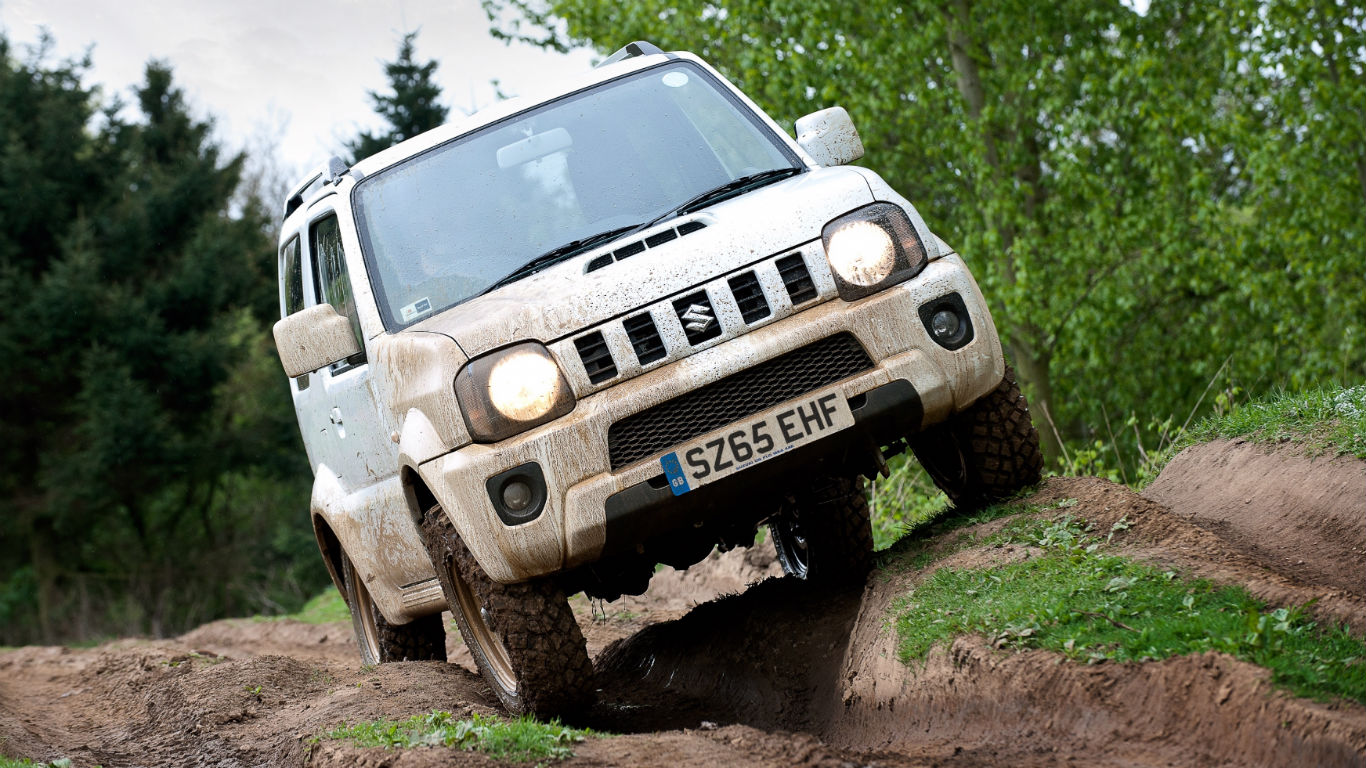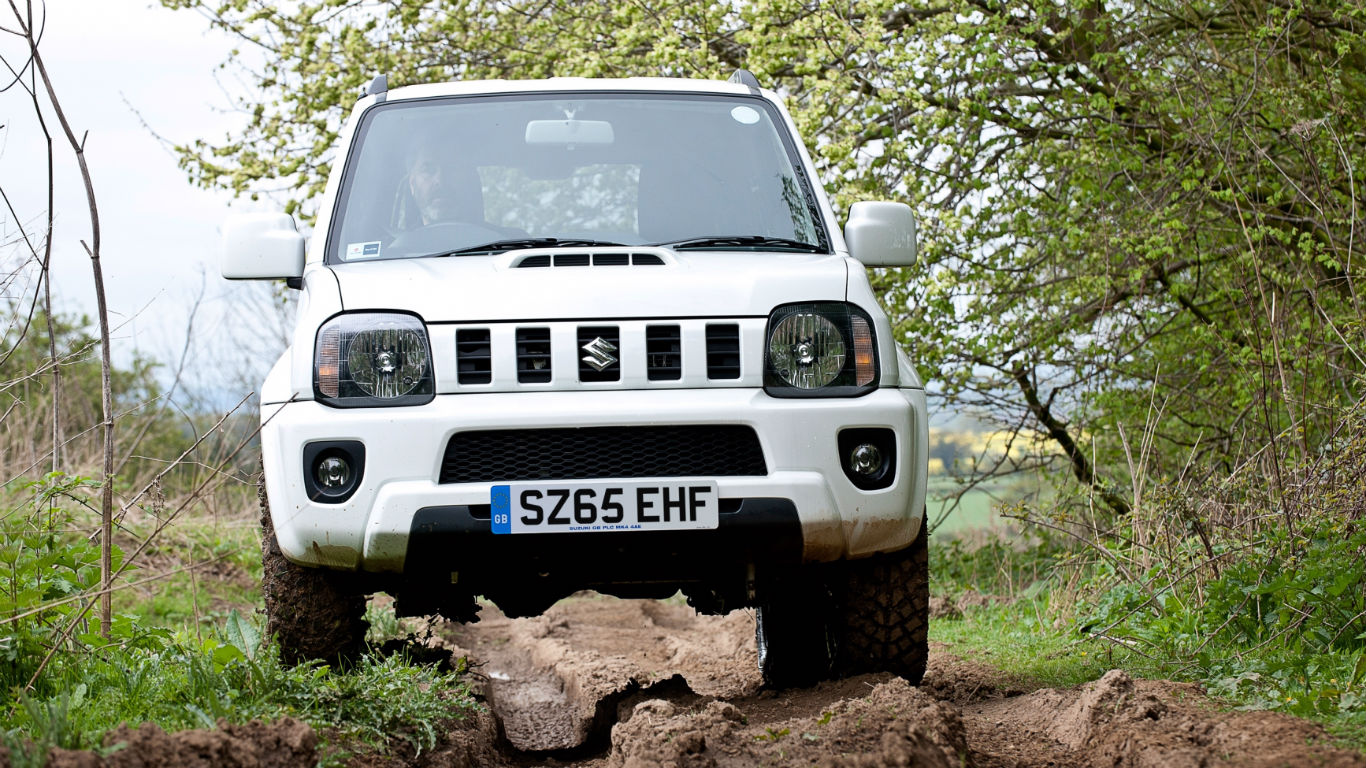The BMW M3 CSL sounds like nothing else I’ve driven. Its baritone blare builds to a surround-sound DTM howl as air is sucked through its carbon fibre manifold then spat out through quad exhausts. I get goosebumps just thinking about it.
At a standstill, though, there’s little to distinguish the Coupe Sports Leichtbau from a standard E46 (2000-2006) BMW M3. Only the true cognoscenti will spot the bespoke 19-inch alloys, subtle lip spoiler and ‘CSL’ badge.
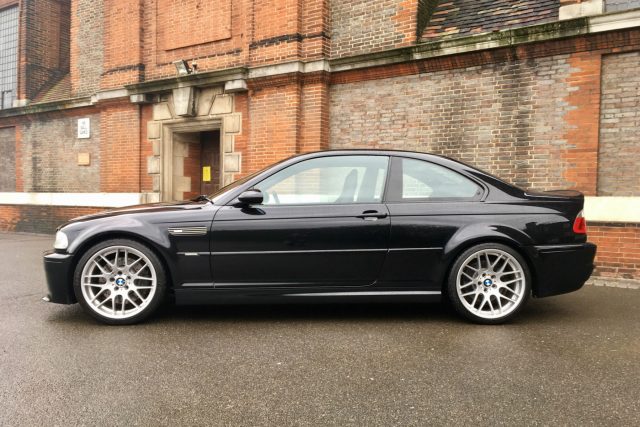
Still, this is no tarted-up special edition. BMW tuned the engine to 360hp, fitted a quicker steering rack, stiffened the chassis, beefed up the brakes and stripped out 110kg of weight.
Does that make a used CSL worth several times the value of an equivalent standard M3? That’s what I’m here to find out.
What are its rivals?
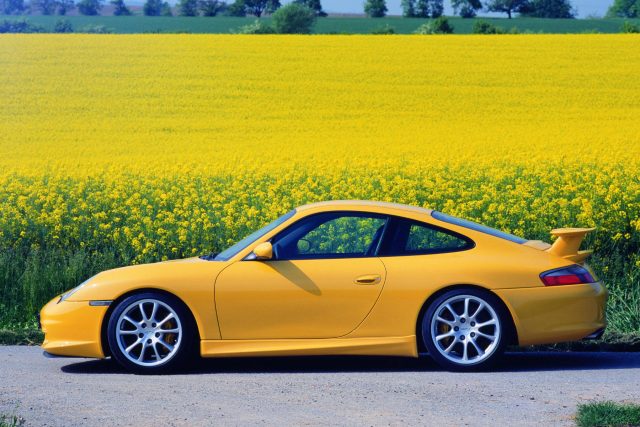
The CSL’s closest rival is perhaps the Porsche 911 GT3. Both have a track-focused ethos and are fully-paid-up modern classics.
The 996 (1999-2005) iterations of the GT3 are similar money to a CSL – £65,000 upwards – while the 997 (2006-2011) GT3 and hardcore RS versions of both models cost significantly more.
Prefer a sledgehammer to a scalpel? The Mercedes CLK63 AMG Black is a few dollars more, while early examples of Nissan’s formidable GT-R dip below £40,000. Don’t forget the 420hp ‘B7’ Audi RS4, too – yours from £20,000.
What engine does it use?
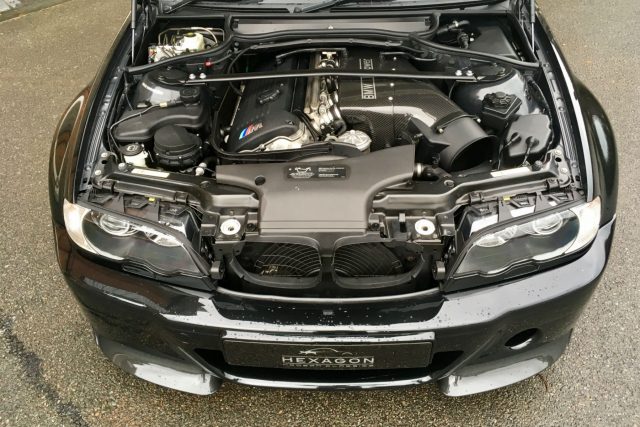
Cloaked in carbon and squeezed beneath a strut brace, the CSL’s 3.2-litre six is something quite special. Power is increased from 343hp to 360hp at a heady 7,900rpm, with a modest 273lb ft of torque at 4,900rpm. Yes, this engine needs – no, demands – to be worked hard.
Find a German autobahn and the uber-M3 will hit 62mph in 4.7 seconds (0.4 seconds quicker than standard), with a top speed of 161mph.
Controversially, the CSL was never offered with a manual gearbox. All cars had a quicker-shifting version of BMW’s SMG semi-automatic, which allows sequential manual changes via the lever or steering wheel paddles. Some cars have since been converted to a stick and three pedals, however.
What’s it like to drive?
Based on a 3 Series, the M3 is already a fairly practical performance car. And while the CSL doesn’t thumb its nose at such matters – it has rear seats and a decent boot, while air-con and a radio were options – it isn’t a car I’d drive every day.
The ride is very firm, for starters: more akin to a tightly-damped GT3 than a regular M3. And the lack of sound deadening puts your ears under constant assault from wind noise, tyre roar and, of course, that freer-breathing straight-six.
Around town, it feels like a caged animal, the ageing SMG ’box venting its frustration with occasionally clunky shifts.
All of that is soon forgotten once you find the right road, though. With no turbo to spool up, throttle response is instant, the engine exploding to 8,000rpm, the gearbox banging each ratio home by brute force.
For all its straight-line performance, it’s the CSL’s handling that elevates it to legend status. The last car I drove that felt so tied-down yet adjustable was a Porsche Cayman GT4. High praise indeed for a BMW first launched in 2003.
The steering is sublime, too, while the chunky Alcantara-wrapped wheel and snug glassfibre buckets add to the road-legal-racer vibe.
Reliability and running costs
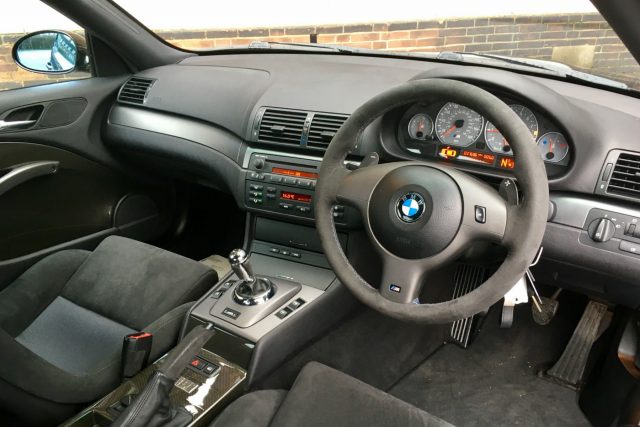
Official fuel economy for the E46 CSL is just 23.7mpg, although you’ll be lucky to see mid-teens if you drive one hard.
Likewise, CO2 emissions of 287g/km mean hefty annual car tax (VED) of £735. Consumables, such as tyres, clutches and brake pads, are expensive as well.
On the plus side, the engine – including its Vanos variable valve timing – is reliable if properly serviced. And there are plenty of specialists that cater for BMW M cars, typically with lower labour rates than main dealers.
Could I drive it every day?
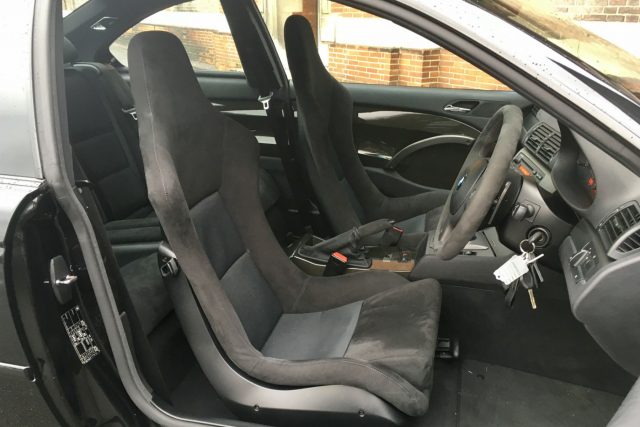
A CSL is a bit like a Jagerbomb: stimulating and intoxicating, but you wouldn’t want one for breakfast.
As I mentioned previously, it’s a bit too single-minded for commuting or ferrying the kids to school. This is a special car best saved for special occasions.
The ideal place to experience a CSL, of course, is on a track. But I suspect very few still see action on circuits: more likely they are tucked up in air-conditioned garages. Such is the fate of the appreciating classic car.
How much should I pay?
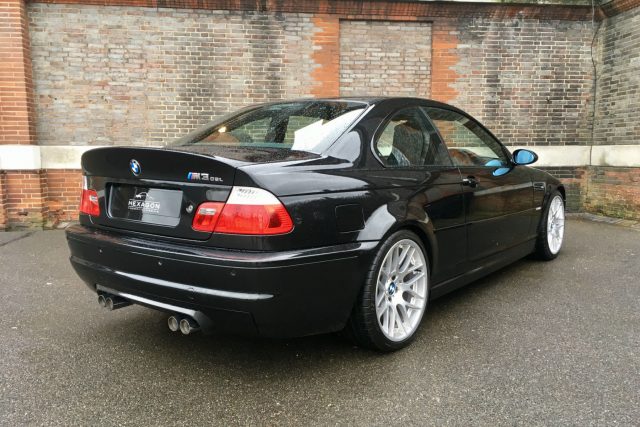
Appreciating? You bet. Paul Michaels, Chairman of Hexagon Classics, says CSL values shot up in 2016, then stabilised soon afterwards.
“You’ll pay between £40,000 and £50,000 for a car with high miles,” he told me in 2017, “but the best examples are close to £100,000”. Today, you can probably add £20,000 to those figures.
A total of 1,400 M3 CSLs were built, including 422 right-hand-drive cars for the UK. Only two colours were offered: Black Sapphire Metallic and Silver Grey Metallic. The black is rarer and worth slightly more.
What should I look out for?
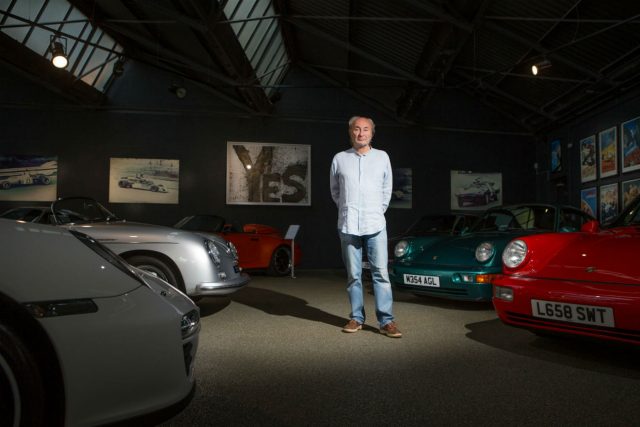
Let’s defer once again to Paul Michaels, who sold BMWs for 46 years. “Service history is absolutely vital,” he says. “Values have increased, but it still isn’t economical to spend large sums restoring them. You could throw a lot of money at a bad CSL.”
Check the service indicator lights on the dashboard aren’t illuminated and scour the paperwork. The car should have had its first oil change at 1,000 miles, followed by intermediate (Inspection 1) and major (Inspection 2) services at annual intervals. The Inspection 2 includes a valve clearance check: missing it could result in Vanos problems.
One well-known M3 issue, not unique to the CSL, is a cracked boot floor – caused by wear in the subframe mounts. If caught early, it’s a minor repair, but once the floor is damaged, the only option is to weld in a new one: a minimum of £1,500.
Parts are still available, but CSL-specific items, such as the carbon front bumper, can be frighteningly expensive.
Remember, originality is key to future value, so check bodywork and interior trim carefully. And steer clear of cars with aftermarket modifications.
Should I buy one?
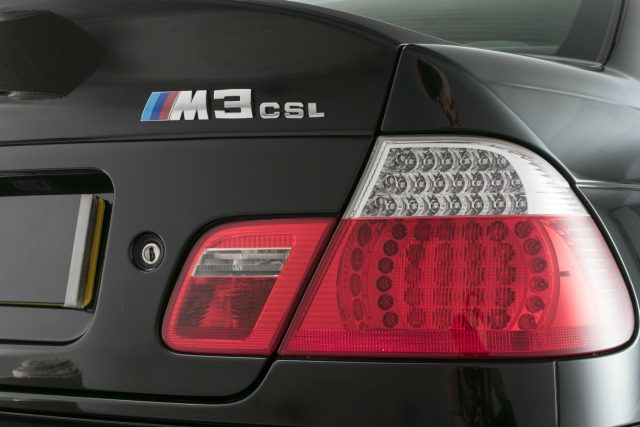
On paper, the CSL doesn’t stack up. You could have 90 percent as much fun in an E46 M3 for a third of the price.
However, the most iconic M Power BMWs have followed the lead of Porsches and rocketed in value. And that makes the CSL – arguably the greatest M3 of all – a potentially savvy investment.
Still, let’s forgot money and talk about the car. When the oil has run dry and we’re all moving from A to B in autonomous electric pods, the CSL will be looked upon wistfully as a legendary driver’s car. It hard-wires itself into your head like a craniotomy, leaving your mouth dry, palms damp and soul stirred.
If that sounds like hyperbole, so be it. Perhaps I’ve been swept up in the CSL’s almighty sound and fury. Ultimately, I think the lack of a manual gearbox would steer me towards a Porsche 996 GT3, but the CSL has earned a place in my dream garage.
Pub fact
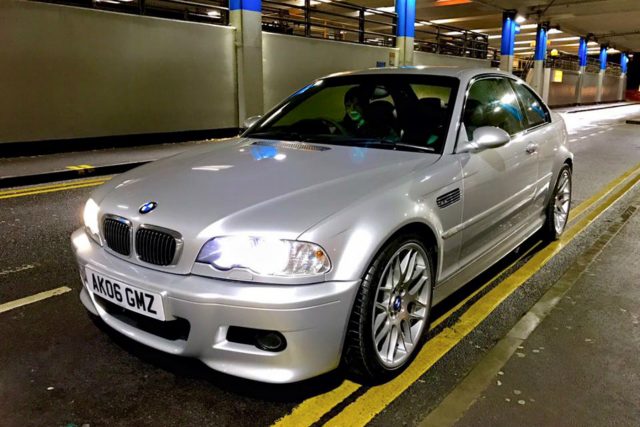
The 2005-2006 M3 CS cherry-picks some of CSL’s best bits for less than half the price. These include the steering rack, brakes and springs, plus a slightly wider version of those gorgeous alloys. Pay £30,000 for a good one.
When we spoke, Paul Michaels also tipped the BMW Z4 M Coupe as one to watch. “Just look at what’s happened to values of the Z3 M Coupe,” he says.
“Classic BMWs don’t get the recognition they deserve at the moment, but I think that will change.”
ALSO READ:
1983 Lotus Esprit S3 review: Retro Road Test
1972 Jensen Interceptor review: Retro Road Test
The greatest second-generation cars

